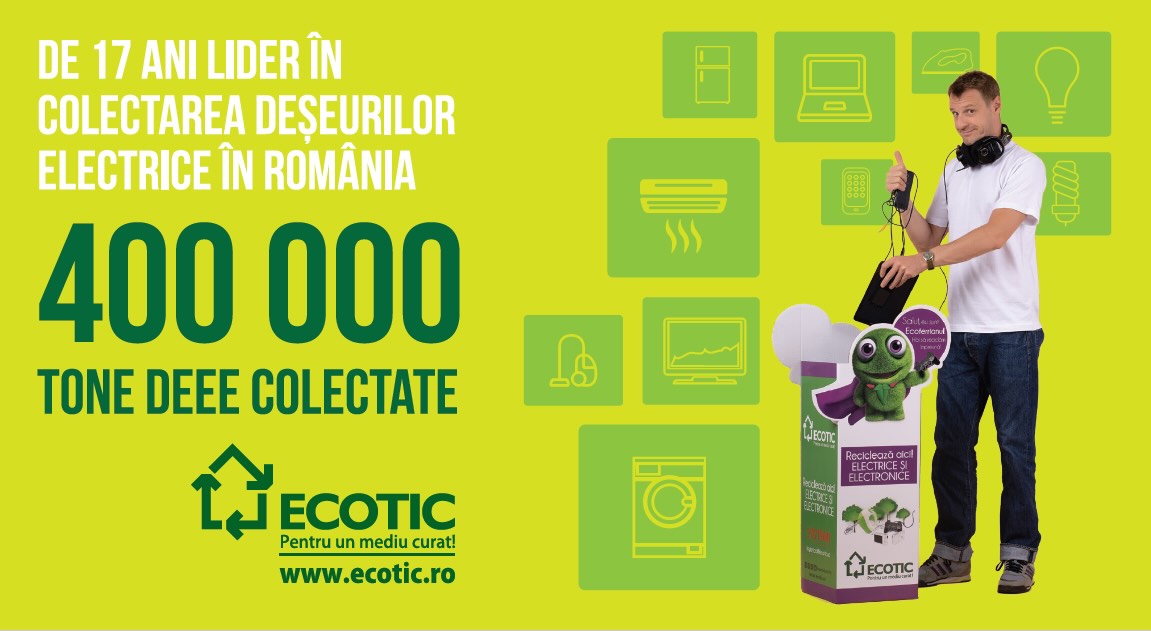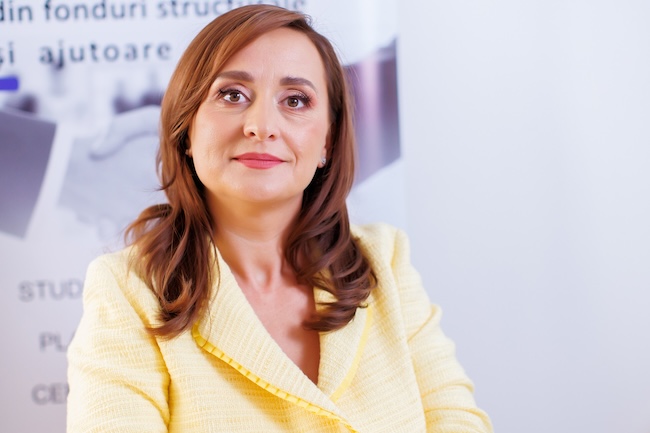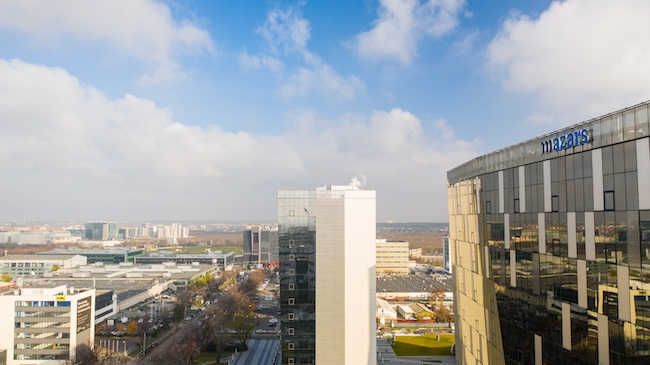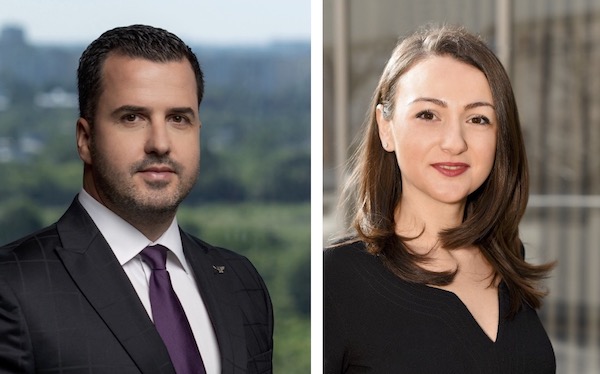Business tourism, still the best chance for luxury hotels
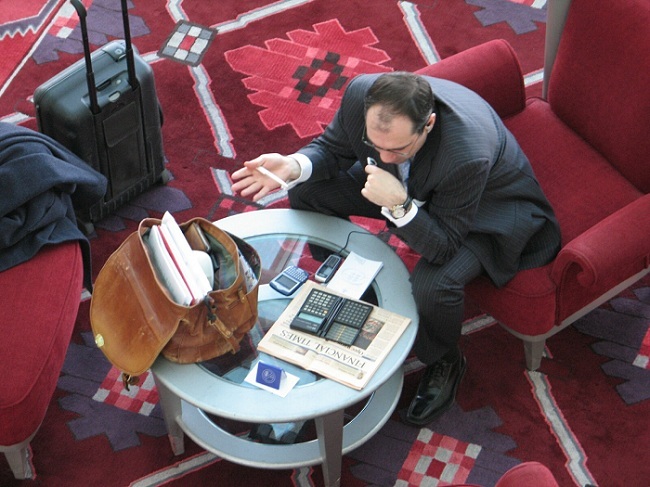
Last week's China and Central-East
Europe Economic Forum, George Enescu Festival, UEFA Europe League 2012 Final or
even the recent football game between Romania and Greece do not seem to have
very much in common. Yet, the Bucharest’s hospitality industry surely has a
distinct point of view – these events are highly important income sources for
the industry. Unfortunately, they are also isolated, remaining occasional, but
very welcome revenue resources moreover since the profit from the leisure tourism segment is almost non-existent for some of those in this branch.
The music festival was, indeed, ‘this year’s highlight and in September all the hoteliers were really satisfied by the occupancy rate and the revenue brought by all tourists in Bucharest’, Ana-Maria Ciotec, Director of Sales & Marketing at Crowne Plaza Bucharest, says. The 28-day George Enescu Festival was a true goodie for all major luxury hotels in Bucharest, likewise the Europe League Final last year when the city was invaded by Spanish supporters. Those foreign tourists, unlike Romanians, are ready to spend more, looking at the same time for higher comfort offered by high-class hotels. And since they find luxury accommodation in Romania at much lower prices (i.e. the price per night in a five-star hotel from a large international chain in Bucharest starts from about 90 euro, whereas a night in the same hotel, with similar facilities, but in Madrid, is over 150 euro) there is no surprise that these hotels enjoy an influx of tourists when such events happen.
However, the overall situation is quite rough these days, when the traces of the economic crisis are still visible. It’s true, Romania - Bucharest, precisely - has never been a real leisure tourism destination to foreigners, those who are likely to accommodate in a high-class hotel, as Romanians don’t have such a tourism culture and commonly look for the cheapest locations. It has a great potential, though, or at least that’s the most heard phrase when it comes to discuss about tourism in Romania.
The latest reports from the National Institute of Statistics indicates a growth of the number of tourists this year, however, the average length of stay slightly dropped to 2.45 nights after nine months in 2013, from 2.53 in 2012.
Thus, until that potential is fructified and the length of stay possibly increases, the hoteliers don’t have any other option, but to adapt. That’s what major luxury hoteliers did, by focusing on the business and event tourism niche, transforming Bucharest in a business destination, mostly for foreigners and struggling, at the same time, to improve the revenue from the leisure segment.
A breath of fresh air for luxury hotels
It’s not so fresh anymore, but business tourism is still the breath helping them stay in business. The estimations indicate that about 80% of the luxury hotels revenue is due to business and event tourism.
‘Indeed, some 80% of the revenue is from business tourism because generally, Bucharest is a business destination at the moment, it mostly depends on business people, people from the corporate area.’ Adrian Adam, Director of Sales & Marketing at Radisson Blu Bucharest confirms.
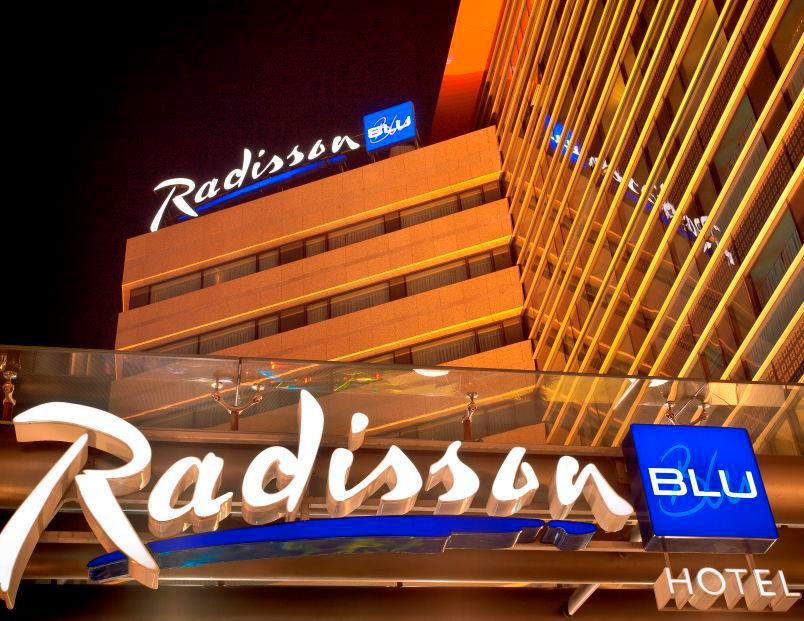 Radisson Blu is currently the most successful five-star
hotel in Bucharest given it has the highest occupancy rate – about 80%, and
possibly because it’s also the newest one, without mentioning its position on
Victoria Avenue, downtown Bucharest. It is also the largest five-star hotel in
Romania considering the accommodation offer which includes more than 700 rooms,
eight restaurants and bars and several conference rooms. However, the common
issues the whole industry faces have not spared Radisson either – business
tourism is the main income source, while the leisure tourism has barely started
to grow, showing, nonetheless, an improvement during the last years.
Radisson Blu is currently the most successful five-star
hotel in Bucharest given it has the highest occupancy rate – about 80%, and
possibly because it’s also the newest one, without mentioning its position on
Victoria Avenue, downtown Bucharest. It is also the largest five-star hotel in
Romania considering the accommodation offer which includes more than 700 rooms,
eight restaurants and bars and several conference rooms. However, the common
issues the whole industry faces have not spared Radisson either – business
tourism is the main income source, while the leisure tourism has barely started
to grow, showing, nonetheless, an improvement during the last years.
‘I think that things are influenced by each other somehow, because actually we were mostly a business destination a few years ago, we are now, too, but people who come here for business and discover the destination, can then spread the word about the fact that here is what to do as a leisure tourist and this way we probably managed to grow.’ Daniela Dumitrescu, Radisson’s District Marketing Coordinator for South East Europe explains.
All the same, Bucharest is little likely to become a leisure destination without some serious effort, remaining mainly a business destination: ‘It is unlikely someone comes in Bucharest to spend a one or two-week holiday here, because Bucharest is not a place to do that. Basically, it fits for the mountain and sea areas, but Bucharest is either for the beginning of a holiday or for its last days. Or for the business visits that commonly spend one-two days.’ Adam added.
Same issues, another hotel – Ramada Plaza. Tourists looking for accommodation in the four-star hotel located in Northern Bucharest are mostly business people, the leisure component of Ramada’s income is much reduced compared with the revenue the hotel gets from business tourism. It is because although the hotel would be fully occupied within the weekdays, the leisure tourism issue affects this rate leading to a significantly lower occupancy rate on Fridays, Saturdays or Sundays. And that is a painful point according to Daniel Ben-Yehuda, General Manager of both Ramada Plaza and Ramada Park – ‘Due to the fact that Romania, Bucharest is a corporate destination, then on the traditional corporate days off, which are the weekends, July, August, December, January, we’re coping with a very big decline in demand for rooms.’ They focus their efforts on improving the leisure offer in order to possibly maintain as much as possible the hotel occupied within such periods as well: ‘Definitely during weekends, we’re trying to attract leisure business and city breaks from other countries, that’s an effort which is ongoing.’
Quite an effort, as Bucharest is not actually on the city breaks’ map, as Ana Maria Ciotec emphasizes - ‘It’s a challenge because we are still not considered a destination where you easily choose to spend a city break. I met quite many travel agencies that are struggling to develop city breaks in Bucharest - for the moment, they are at the offer stage, but I haven’t seen anything concrete.’ And that affects most of hotels, since the weekend issue is not painful just for Ramada Plaza: ‘For the 164-room hotel, the weekend draws us down the worst. Friday, Saturday, Sunday – even if we have a 100% occupancy rate during the week, you will automatically drop in occupancy for the weekend when you are very satisfied with a 40% rate.’ she says.
Business tourism is not just business tourism
When we talk about business tourism these days, we do not refer any longer just to business trips, but to a concept comprising of a broad range of activities. Commonly known as the MICE industry – Meetings, Incentives, Conventions and Exhibitions – it is what business tourism generally refers to nowadays. And what brings some hundreds of millions to hospitality industry annually.
How important this income source is to hoteliers is quite obvious since Crowne Plaza requested to be declassified from five to four stars in order to be eligible for medical congresses that cannot be held in five-star hotels. Yet, the decision was attributed to the global policy that rates Crowne Plaza chain at upscale four stars – ‘Crowne Plaza decided to align with Crowne Plaza chain worldwide in 2012. (...). Crowne Plaza is considered an upscale four stars - usually in Europe they don’t take into account anymore the stars category. There is upscale and luxury. We are upscale luxury and considering the global alignment, we decided, indeed, to turn to four stars from five stars, which facilitated the organizing of many congresses in the pharma area and that have limitations and interdictions on five stars (hotels). The decision was strategic and also helped the future sales policy. And, indeed, the business in the pharma area enhanced after turning to four stars.’ Ana Maria Ciotec explains.
The competition is though, harsh and hotels pay some effort to stand out the crowd and get a bigger slice of the pie worth about 700 million euro, according to the APIER’s (Romanian Association of Event Industry Professionals) estimates. While Crowne Plaza profits from its food & beverage services, thanks to a very appreciated Indian Executive Chef who became an important decision factor to its clients when it comes to choose where to hold an event, according to Ciotec, the nearly located Ramada Plaza benefits from having Ramada Park just at a stone’s throw. The former Park hotel is rated three-star, offering an affordable alternative to Ramada Plaza - ‘Conceptually we have a very, very smart idea. First of all we are two hotels with a total of 567 rooms which have a common lobby area and we’re now finalizing – is which is now being finalized – so we talk about 600 rooms with an internal pool and an external pool, a connection between both hotels very convenient, wide and aesthetic, two restaurants, about 22 meeting rooms, so we actually have the full package.’
This being the case, hoteliers work on creating compelling offers and developing the social events segment meant to attract tourists, other than corporate people or even them, but during the days off. Events such as weddings, receptions, private parties became an important target for luxury hotels.
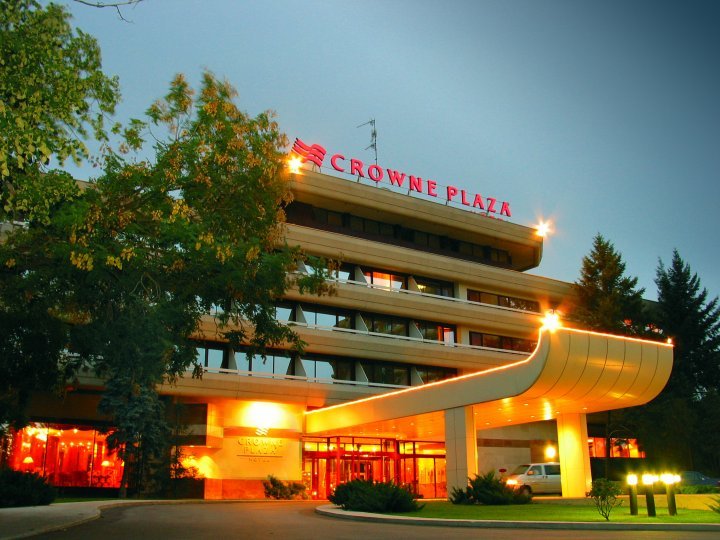 With a smaller accommodation capacity, Crowne Plaza
benefits from a unique landscape -
a 4000 mp garden that attracts social events - from workshops to receptions,
weddings or even culinary festivals. Besides the quality of the services
provided, they also pay high attention to build strong relations with the
clients to make sure they return – ‘It is
very clear to me that people buy from people and when you have in your team
quality people who build very good relations with the collaborators, you ensure
a regular clientele and loyalty. And here we focused very much on the sales
team, the events team and many times guests come back thanks to our people.’Ana Maria Ciotec says.
With a smaller accommodation capacity, Crowne Plaza
benefits from a unique landscape -
a 4000 mp garden that attracts social events - from workshops to receptions,
weddings or even culinary festivals. Besides the quality of the services
provided, they also pay high attention to build strong relations with the
clients to make sure they return – ‘It is
very clear to me that people buy from people and when you have in your team
quality people who build very good relations with the collaborators, you ensure
a regular clientele and loyalty. And here we focused very much on the sales
team, the events team and many times guests come back thanks to our people.’Ana Maria Ciotec says.
As adaptability goes hand in hand with creativity, Radisson Blu is continuously working on implementing the concept called experience meetings aiming to combine the high-standard meetings with brain food (fish, wholegrain products, fruit and vegetables, locally sourced ingredients, pure ingredients with minimal industrial processing, less meat etc.) – at the same time ‘fulfilling the responsibility’ towards the environment, ensuring that the events they organize have no environmental impact.Besides that, they specialized on outside catering and in 2012 they catered for 5000 VIPs at UEFA Europe League Final.
Why Budapest, not Bucharest?
Although the business and event tourism gets satisfactory
income to luxury hoteliers, they are facing an annoying and frustrating situation
as Bucharest is still not seen as an international MICE destination, the events
growing their incomes being mostly local. In spite of having a high-level
servicing, nothing less than anywhere throughout Europe, the classic tourism
issue is prevalent in this sector, too – Bucharest is not on the map.
Why is that? What we are missing in Romania when we talk about the MICE market is actually the big zone conventions. (...) In Romania now I think the maximum capacity of a big event would be around 800 people in one time in one meeting room in a comfortable sitting area, not in a theatre. We miss a respectful convention center, a big one – we have very high-level now, but small. (...) At this moment if big corporations worldwide are planning to do a big convention somewhere, Romania is not on the list. They don’t think about us as a competitor for this big event. Definitely, there are small events and small kind and small issues they will consider us, but the big ones, the major ones are not even coming into our area. They go sometimes to Budapest, because they have big capacity, they go to Czech Republic, but they don’t come here.’ Daniel Ben-Yehuda explains.
Ana Maria Ciotec shares this point of view: ‘Large international conferences are hard to set up because there aren’t high-capacity halls, there aren’t congress meeting rooms, as you find in all the other important European capitals. The Intercontinental Hotels Group works in a very efficient online system created for conference and meetings organizers where requests are filled in and sent to our hotel. I may say that every time we have a request for a big event the preferred locations indicated are Prague, Vienna, Budapest and Bucharest. Unfortunately, most of the times Bucharest is not chosen and we miss a lot of important large events.’
Yet, the issue is differently approached by Radisson Blu’s representatives. The fact the Bucharest is missing such a large convention center is not a major issue, but the lack of a well-organized organism to support the development in the industry and to promote Bucharest as an international MICE destination.
‘Firstly, I think that this is the single European city, capital, which does not have a functional convention bureau, there is not any institution to promote this kind of tourism in Bucharest and this is visible internationally, in Romania’s presence at both fairs and events dedicated to this industry. There is not a clear strategy from the Ministry to promote Bucharest as an events destination, a MICE destination. Otherwise, basically, if we look at the Europe’s top cities which receive a very important, very large number of events, we cannot necessarily say that we are missing something. We have a well-established airport, we have air routes all across Europe and the oversea regions, hotels accommodation infrastructure.’ Adrian Adam said.
Radisson’s Director of Sales further emphasizes that ‘On the other hand, I don’t think we should approach this issue necessarily this way because a big city can host several such events or some tens of events, not on a daily basis, events gathering thousands of people, but as each big hotel of four or five stars has conference rooms for up to 5 – 6 - 700 people, they are more than enough for attracting such businesses in Romania, in Bucharest. I mean that we do not necessarily have to think about events for thousands of people, we can attract events for 100, 200, 500 people. (...)’.
Ramada makes a case for Bucharest and plans to build a convention center
As there are always two sides of every story, this time, probably, both are true. Transforming Bucharest in a real and important MICE destination should be subject of a joint effort. Just building a huge convention center would be not enough, if Bucharest was not promoted as a business destination and its advantages are not exploited. So, besides providing an opportunity, Bucharest should be able to provide a good reason for big events come here.
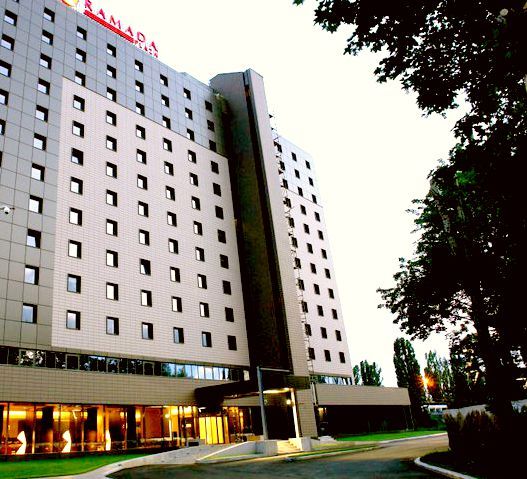 ‘People with the will to invest at this moment don’t have
the security, the confidence in investing this big amount of money to build a
convention center. (...)The question - what to come first, the egg or the
chicken? So they will build these conventions centers, but may be empty for
years – two or three years until the big conventions will start coming here. So
maybe it should be a combined effort, maybe the government should give some
kind of incentive to private people to build this kind of conventions centers,
maybe to be partnerssomeway.’ Daniel
Ben-Yehuda stresses out, also clarifying somehow the issue with the egg and the
chicken: ‘I will point out that our first
stage which we haven’t started yet, but it’s in the planning, we are going to
build the biggest convention center in Romania. We have the space for bring it
and it will be around 2000 square meters with another 2000 square meters of
foyer with amphitheatre. (...) We have the space, we have all the planning, but
at this moment we’re waiting a little to see how the business is going in
Romania. So, we will build it at some point.’
‘People with the will to invest at this moment don’t have
the security, the confidence in investing this big amount of money to build a
convention center. (...)The question - what to come first, the egg or the
chicken? So they will build these conventions centers, but may be empty for
years – two or three years until the big conventions will start coming here. So
maybe it should be a combined effort, maybe the government should give some
kind of incentive to private people to build this kind of conventions centers,
maybe to be partnerssomeway.’ Daniel
Ben-Yehuda stresses out, also clarifying somehow the issue with the egg and the
chicken: ‘I will point out that our first
stage which we haven’t started yet, but it’s in the planning, we are going to
build the biggest convention center in Romania. We have the space for bring it
and it will be around 2000 square meters with another 2000 square meters of
foyer with amphitheatre. (...) We have the space, we have all the planning, but
at this moment we’re waiting a little to see how the business is going in
Romania. So, we will build it at some point.’
Until that right moment comes, the industry acutely needs some support from the authorities in the field that have neglected up to this point this huge opportunity Bucharest has to become a reference point in the MICE sector. As without a consistent lobby from their side, individual efforts of hotels have little chance to succeed in the competition with other well-known cities across Europe that benefit from high support from authorities or conventions bureaus that are a must in the MICE industry.
Doing something in this respect, except meetings and discussions with no effective materialization would be not only a positive feedback to the investors already in this industry, but also to others interested to enter the luxury hotels market in Romania. Because apart from not having a very stable market, due to the recent economic crisis, possible investors hesitate to bring their business here as the development prospects show little certainty. So, keeping Bucharest’s potential, in this case, untouched, preserved, regrettably means keeping potential investors apart from a market that despite all outward appearances, is yet to be saturated.



